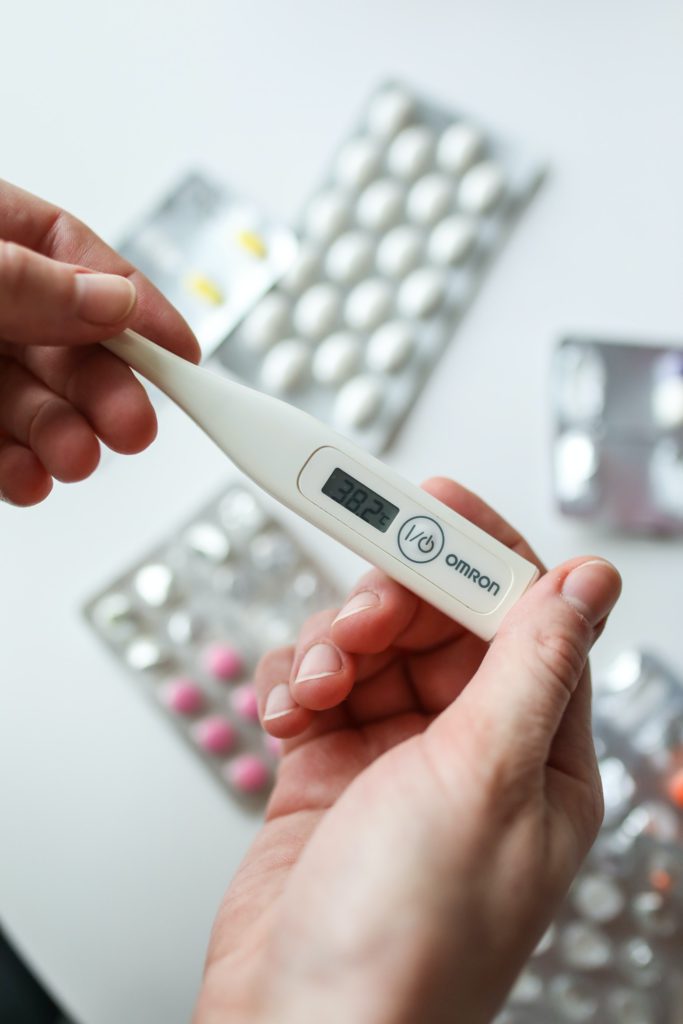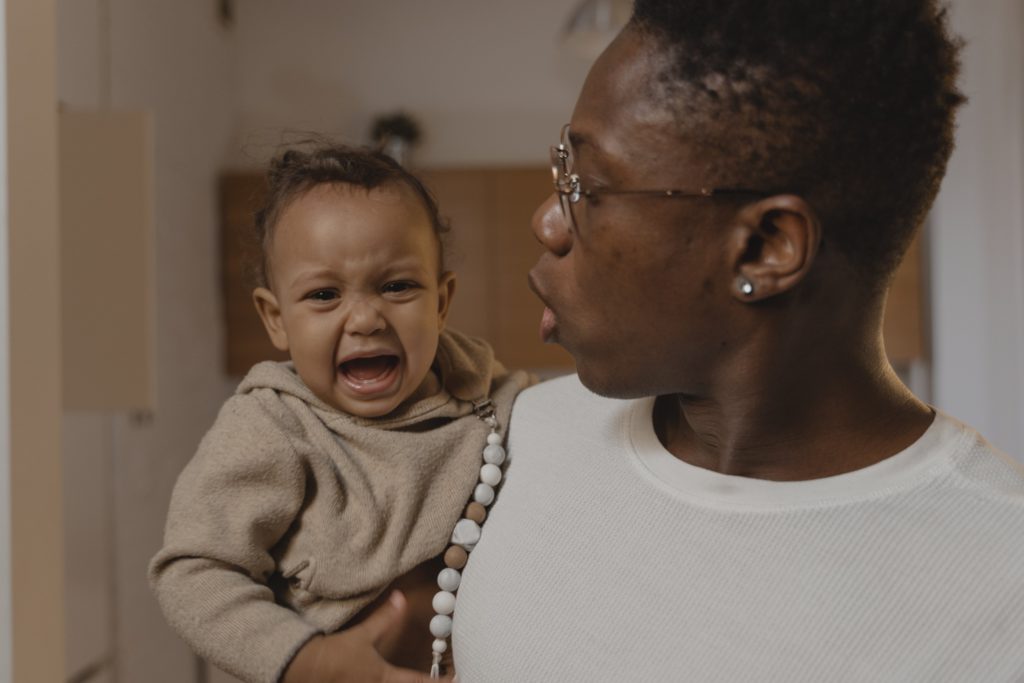Fever in babies is a common problem that nearly all parents experience. It is natural to feel worry when you feel your baby’s hot, feverish forehead.
However, fever in babies is usually not a cause for alarm. This is because no matter how hard you try, infections from time to time are unavoidable, and a fever is a good sign that your baby’s body is trying to fight the infection.
Nevertheless, many parents may wonder: How high is too high? When should I worry? Should I take my baby to the emergency?

As always, we have all the answers you need! Keep reading to learn more about fever in babies and telltale signs that your baby needs to be taken to the hospital immediately.
What is a Fever in Babies?
The best way to check if your baby has a fever is to use either a rectal or armpit thermometer to measure the body temperature.
Babies are said to have a fever when they have a rectal temperature greater than 100.4°F (38°C) and an armpit temperature greater than 99°F (37.22°C).

Causes of Fever in Babies
Viral and bacterial infections are the most common causes of fever in children. A fever is a good sign that the body’s immune system is trying to fight off the infection by preventing the viruses and bacteria from multiplying.
In most cases, the body can overcome the infection and the fever resolves in a few days.
When to Worry
Although fever in babies is generally not a cause for worry, there are some exceptions. Contact your doctor or healthcare provider if your baby:
- Is younger than 3 months old and develops a fever.
- Is between 3 to 6 months old, appears unwell, and develops a fever up to 102 F (38.9 C).
- Is between 6 to 24 months old with a temperature greater than 102 F (38.9 C) lasting more than a day, even in the absence of any other symptoms.
- Has a fever that lasts for more than three days.
Additionally, the following symptoms could also indicate that your baby’s fever might be something to worry about:
Loss of Appetite: Your baby continuously rejects food and does not eat as much as before.
Behavioral Changes: You notice your child is sleeping more than usual, difficult to wake up, or crying inconsolably.

Tender Navel or Penis: Your baby’s umbilical region or penis is suddenly tender to touch or it begins to ooze, bleed, or turn red.
Diarrhea: Passing of stool more than three times a day, especially if the stools are loose and watery.
Vomiting: Forceful or projectile flow of food or liquid through your baby’s mouth, especially after eating.
Dehydration: Signs that your baby is dehydrated include crying with fewer tears, dry mouth, less wet diapers, and sunken soft spots (fontanelles)
Constipation: Your baby poops less frequently and seems very uncomfortable. Contact your doctor immediately if you notice your baby has constipation, vomiting, and abdominal distention.

Colds: Your baby has a cold that makes breathing difficult or lasts for more than 10 days.
Eye Discharge: Your baby’s eyes are red, swollen, or producing excess mucus.
Others: Some other worrisome symptoms include;
- Increased irritability
- Sore throat
- Worsening cough
- Pain with urination
- Earache
- Abdominal pain
- Headache
- Stiff neck
- Swollen joints
- Localized pain
- Purplish or dark rash
When to Seek Emergency Care
While the above symptoms in combination with a fever are causes for worry, you should immediately take your feverish child to the emergency for:
- Poisoning
- Uncontrolled bleeding
- Seizures
- Large or deep cuts, burns, or smoke inhalation
- Major mouth or facial injuries
- Head injury followed by altered consciousness, confusion, headache, pupil size changes, or vomiting
- Difficulty breathing
- Bluish skin or lips
Take Home Message
As parents, we understand that fevers can be terrifying. However, if your baby’s fever is mild with no alarming symptoms, you do not need to worry. Simply dress them appropriately, while providing enough fluids, rest, and love. The fever should resolve in a few days.

However, always be on the lookout for the above signs that may indicate that your baby’s fever is due to something more serious.
Most importantly, trust your gut instincts. Even if you do not notice any of the above signs but still feel like something is wrong, please take your child to the hospital. Your doctor or healthcare provider will always be ready to ensure your child is hale and hearty!

